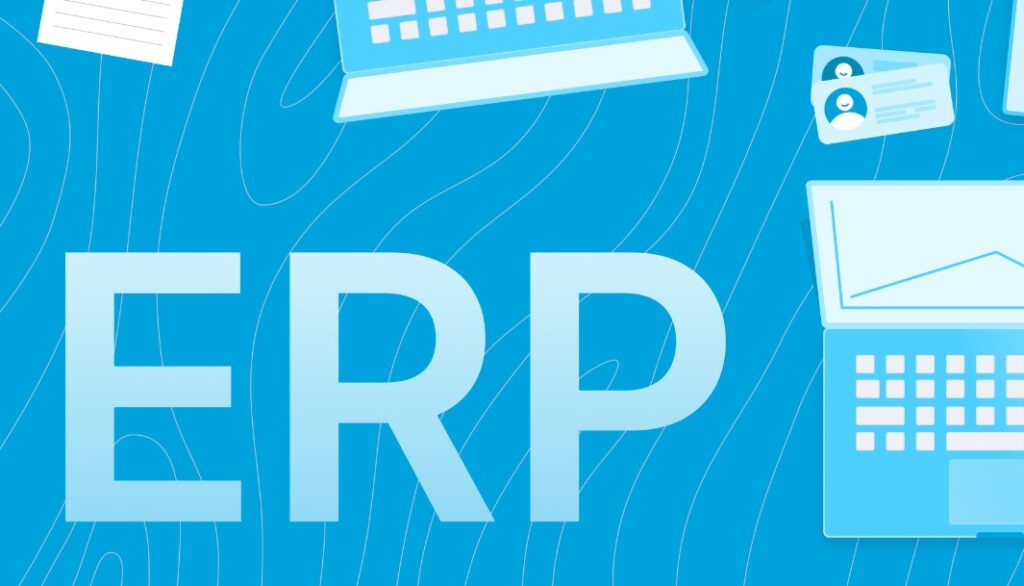In today’s fast-paced business environment, startups need efficient tools to streamline operations and optimize resources. Enterprise Resource Planning (ERP) solutions offer an affordable way to achieve this, providing comprehensive management of finance, supply chains, human resources, and more. If you’re a startup looking for cost-effective ERP solutions, this guide will introduce you to the best options available today, along with detailed information, pricing, and where to purchase these products.
What Are ERP Solutions?

Enterprise Resource Planning (ERP) solutions are comprehensive software platforms designed to integrate and manage a company’s key business processes within a single system. These processes can include a wide range of functions like:
- Accounting and Finance: Managing budgets, invoicing, payroll, and financial reporting.
- Human Resources (HR): Handling employee data, payroll, recruitment, and performance management.
- Supply Chain Management: Overseeing inventory, procurement, logistics, and vendor management.
- Customer Relationship Management (CRM): Managing customer data, sales, support, and marketing automation.
- Manufacturing: Planning production, managing resources, and optimizing workflows.
How ERP Systems Work:
ERP systems function by centralizing data across various departments of an organization. Instead of having separate, disconnected tools for each business area (like a separate accounting system or a separate inventory tracker), ERP integrates all of these into one unified system. This means that data is entered once and then used across the organization, reducing redundancy and errors.
For example, when a customer makes a purchase, an ERP system can automatically update inventory levels, process the financial transaction, and adjust sales and revenue figures. This streamlines operations, improves accuracy, and allows teams to make better decisions based on real-time data.
Types of ERP Solutions:
When considering ERP solutions, it’s important to choose the right type for your business based on factors such as scalability, budget, and specific needs. There are three main types of ERP solutions available today, each offering different benefits and functionalities. Let’s dive deeper into the specifics of Cloud ERP, On-premise ERP, and Hybrid ERP, so you can determine which is best for your startup.
1. Cloud ERP
Cloud ERP refers to ERP software that is hosted and operated on cloud servers, meaning all of your data and processes are managed online rather than on local servers. This type of ERP is typically delivered as a Software as a Service (SaaS) model, where you pay a subscription fee based on the number of users or the modules you need.
Key Benefits of Cloud ERP:
- Cost-Effective: Cloud ERP eliminates the need for heavy upfront costs associated with hardware, installation, and server maintenance. You typically pay a monthly or yearly subscription, making it easier for startups to budget and scale.
- Accessibility: Since it’s hosted in the cloud, your team can access the ERP system from anywhere with an internet connection, which is perfect for remote teams or businesses with multiple locations.
- Scalability: Cloud ERP is highly scalable, allowing you to add users, modules, and features as your business grows without significant downtime or complex installations.
- Automatic Updates: Providers manage updates and maintenance, ensuring that your system is always up to date with the latest features and security patches.
Popular Cloud ERP Solutions:
- NetSuite: A comprehensive cloud-based ERP ideal for fast-growing startups.
- Odoo: A flexible and affordable cloud ERP solution offering a wide range of business applications.
- SAP Business ByDesign: Tailored for medium-sized businesses but with scalable options for growing startups.
Use Case:
Startups with limited IT resources, tight budgets, or remote teams often prefer cloud ERP for its flexibility, lower cost, and ease of access.
2. On-premise ERP
On-premise ERP refers to ERP systems that are installed locally on a company’s own servers and hardware. The business is responsible for maintaining the software, managing updates, and handling any troubleshooting in-house. This option offers more control over the system but also comes with higher upfront costs and ongoing management responsibilities.
Key Benefits of On-premise ERP:
- Customization and Control: You have full control over the ERP system and its configurations, which means you can tailor the software to meet your specific needs.
- Data Security: With all data stored in-house, businesses can implement their own security protocols. This is particularly important for startups in industries where data security and privacy regulations are critical.
- No Subscription Fees: While the initial setup cost is high, there are no recurring subscription fees beyond regular maintenance, making it a long-term investment.
Challenges of On-premise ERP:
- High Initial Investment: On-premise ERP requires significant investment in infrastructure, hardware, and IT personnel to install and maintain the system.
- Limited Accessibility: Unlike cloud solutions, on-premise ERP is typically restricted to users who are on-site or connected to the company’s internal network.
- Manual Updates: The business is responsible for keeping the system updated, which can lead to downtime and delays in accessing new features.
Popular On-premise ERP Solutions:
- SAP Business One: A robust ERP solution with on-premise options for startups requiring advanced customization.
- Microsoft Dynamics GP: An established ERP with strong financial and operational modules that can be deployed on-premise.
Use Case:
Startups that require full control over their data, have specific customization needs, or are operating in industries with strict data security regulations (such as healthcare or finance) may prefer an on-premise ERP.
3. Hybrid ERP
Hybrid ERP combines elements of both cloud and on-premise solutions, offering businesses a flexible way to manage their operations. In a hybrid setup, some modules or features are hosted on the cloud, while others remain on the company’s local servers. This gives startups the best of both worlds—control over critical data and processes, along with the flexibility of the cloud.
Key Benefits of Hybrid ERP:
- Flexibility: You can choose which parts of your business operations to move to the cloud while keeping more sensitive or complex operations on-premise.
- Reduced Cost: By hosting only critical components on-site, you can save on infrastructure costs, while still benefiting from the scalability and convenience of the cloud.
- Business Continuity: Hybrid ERPs provide better disaster recovery options. If one system goes down (cloud or on-premise), the other can often continue operating without interruption.
Challenges of Hybrid ERP:
- Complexity: Managing both cloud-based and on-premise systems can introduce complexity in terms of integration, data synchronization, and user access.
- Customization Limitations: While the on-premise component may allow for more control and customization, the cloud aspect may come with limitations in terms of configuration.
Popular Hybrid ERP Solutions:
- Oracle ERP Cloud: Offers hybrid deployment options for startups that want to balance cloud accessibility with on-premise control.
- IFS Applications: Provides modular ERP with hybrid capabilities, enabling businesses to choose the deployment that works best for them.
Use Case:
Startups looking for the flexibility of the cloud but with certain industry-specific requirements (like privacy regulations) that necessitate some on-premise control may benefit from a hybrid ERP.
Why Startups Should Care About ERP Solutions:
Startups often face challenges in managing multiple aspects of their business with limited resources. Without an ERP, startups might rely on several disconnected tools, which can create inefficiencies and cause delays. ERP systems centralize all business operations, allowing startups to operate more effectively and scale without the chaos that can come from disorganized data and processes.
By providing real-time insights, automating repetitive tasks, and streamlining data flow, ERP solutions help startups:
- Increase productivity by reducing manual work.
- Improve decision-making through real-time analytics and reporting.
- Ensure scalability by easily adapting to business growth without needing to switch systems.
ERP systems help startups achieve operational efficiency and gain the competitive advantage they need to grow and succeed in their respective industries.
Top 5 Affordable ERP Solutions for Startups

Here are the five best ERP solutions that are affordable, feature-rich, and ideal for startups:
1. Odoo ERP
Odoo ERP is an all-in-one management software that offers a wide range of business applications to manage sales, CRM, projects, manufacturing, inventory, and accounting.
- Features: Fully integrated, user-friendly modules, open-source, customizable, mobile-friendly
- Price: Starting at $12/user/month
- Pros: Highly customizable, strong community support, open-source
- Cons: Can require IT expertise for customization
- Use case: Ideal for startups that need flexibility and scalability. Suitable for managing complex workflows as the business grows.
2. Zoho ERP
Zoho offers a suite of ERP tools specifically designed for small businesses and startups. Its modules cover sales, marketing, customer support, accounting, and inventory.
- Features: Comprehensive suite, affordable pricing, easy to use, integrated CRM
- Price: Starting at $10/user/month
- Pros: Budget-friendly, easy to integrate, excellent customer support
- Cons: Limited customization compared to other tools
- Use case: Best for startups needing an affordable, easy-to-use system for basic business operations.
3. ERPNext
ERPNext is another open-source solution that provides a full suite of business management tools for startups.
- Features: Multi-currency support, multi-company setup, strong reporting tools
- Price: Free for self-hosting or starting at $10/user/month for cloud-based versions
- Pros: Cost-effective, strong reporting tools, community-driven development
- Cons: Requires technical expertise for setup
- Use case: Great for startups looking for a feature-rich ERP without high costs and who have the resources to manage technical deployments.
4. NetSuite ERP
NetSuite offers robust ERP functionality for growing startups. Though it is one of the more premium options, it provides scalability and an array of advanced features.
- Features: Complete business suite, real-time data access, scalability
- Price: Starting at $99/user/month
- Pros: Scalability, comprehensive suite, advanced reporting
- Cons: Higher cost, complex to implement
- Use case: Best for startups expecting rapid growth and looking for an ERP solution that can scale alongside them.
5. SAP Business One
SAP Business One is designed for small to mid-sized businesses and offers extensive functionality to manage everything from financials to supply chain and project management.
- Features: Extensive customization, cloud-based, multi-language support
- Price: Starting at $50/user/month
- Pros: High level of customization, reliable brand, cloud options
- Cons: Steeper learning curve, more expensive than some alternatives
- Use case: Ideal for startups that need deep customization and are willing to invest for more robust features as they scale.
Comparison Table: ERP Solutions for Startups

| ERP System | Use Case | Pros | Cons | Price | Key Features |
|---|---|---|---|---|---|
| Odoo | Customizable, scalable | Open-source, customizable | Requires IT expertise | $12/user/month | CRM, sales, accounting, inventory |
| Zoho | Budget-friendly, easy setup | Affordable, easy to use | Limited customization | $10/user/month | CRM, customer support, sales |
| ERPNext | Open-source, cost-effective | Free for self-hosting, reporting | Needs technical setup | Free or $10/user/month | Multi-currency, company reporting |
| NetSuite | Scalable for rapid growth | Comprehensive suite, real-time | Expensive, complex to implement | $99/user/month | Financials, supply chain, CRM |
| SAP Business One | Customization for deep operations | High customization, reliable | Expensive, steep learning curve | $50/user/month | Project management, supply chain |
Benefits of ERP Solutions for Startups

Implementing ERP solutions can drastically improve the efficiency and scalability of your startup. Here are key benefits to consider:
- Increased Productivity: By automating repetitive tasks and centralizing data, ERP systems free up valuable time for your team to focus on growth and innovation.
- Better Data Management: ERPs offer real-time data tracking, which leads to more informed decision-making and allows for proactive problem-solving.
- Cost Savings: Reducing manual errors and optimizing operations means less wasted resources and more efficient use of capital.
- Scalability: As your business grows, an ERP can grow with you, preventing the need to transition to new software later on.
How to Buy Affordable ERP Solutions

Many ERP providers offer free trials or demo versions so that you can test their systems before committing. Here’s a simple guide on how to purchase these systems:
- Visit the vendor’s website: Most ERP providers offer direct purchases from their sites. Check out Odoo, Zoho, ERPNext, NetSuite, and SAP Business One.
- Choose a pricing plan: Each ERP provider has several pricing plans based on the number of users and modules required. Select the one that fits your startup’s needs.
- Complete the purchase: Use the vendor’s secure checkout process to complete the transaction. Many offer monthly or yearly payment plans to suit your budget.
Frequently Asked Questions (FAQs)
- What is the most affordable ERP solution for startups?
Odoo and ERPNext are among the most affordable options, with plans starting at $10-12 per user per month. - Can ERP systems be customized?
Yes, many ERP systems like Odoo and SAP Business One offer extensive customization options. - Is it necessary for startups to invest in ERP?
While not necessary for all, startups experiencing rapid growth or handling complex operations can greatly benefit from ERP systems. - Can I scale my ERP solution as my business grows?
Absolutely. Systems like NetSuite and SAP Business One are designed to grow with your business. - Where can I try these ERP solutions?
Many ERP providers, including Odoo and Zoho, offer free trials or demos on their websites. Check their pricing pages for more details.
By choosing the right ERP solution, startups can improve efficiency, lower operational costs, and set a strong foundation for future growth. With options like Odoo, Zoho, and ERPNext, there are affordable and scalable solutions that fit the unique needs of any startup.
